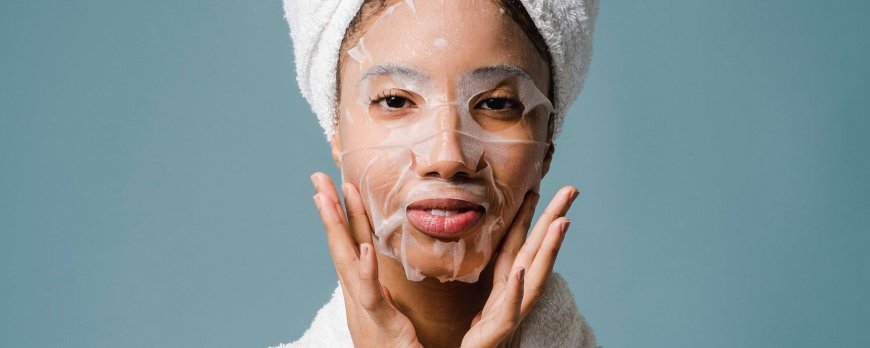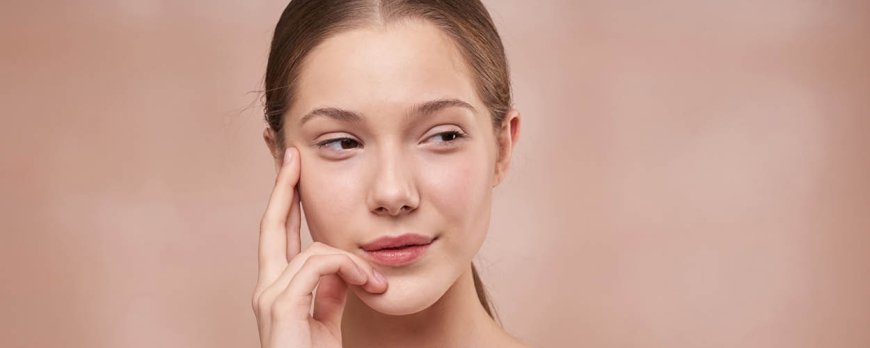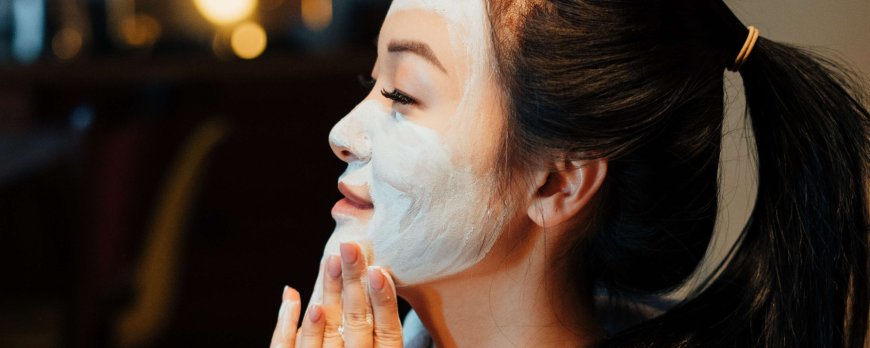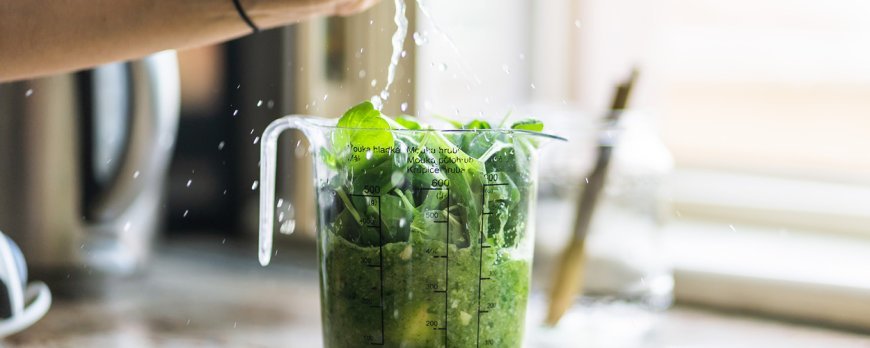Why do I look so old for my age?
Explore the causes behind 'Why do I look so old for my age?' Uncover lifestyle factors, habits, and genetics that may accelerate aging. Learn to rebuild youthfulness.

Why do I look so old for my age?
Aging is a natural process that affects everyone, but some individuals may notice they look older than their actual age. There are several reasons why this may occur, including both natural aging processes and lifestyle factors.
As we age, our bodies undergo changes that can contribute to the signs of aging. The decrease in collagen and elastin production leads to a loss of elasticity and firmness in the skin, while slower skin cell regeneration can result in a dull and rough complexion. Additionally, the loss of fat cells can cause the face to appear sunken and hollow.
Lifestyle and environmental factors can also play a role in premature aging. Smoking, excessive sun exposure, and lack of proper skincare can all contribute to the development of wrinkles, fine lines, and age spots. Not getting enough sleep, experiencing chronic stress, and relying on makeup instead of sunscreen can also accelerate the aging process.
It's not just about skincare and lifestyle habits. Neglected areas such as the neck and hands can make you look older, and forgetting to wear sunglasses or neglecting dental care can also contribute to an aged appearance. Using drying soap, wearing old trends or ill-fitting clothes, and not eating a healthy diet can further compound the effects of aging.
By addressing these factors and adopting healthy habits, it is possible to reverse or slow down the aging process and achieve a more youthful and vibrant appearance.

Key Takeaways:
- Natural aging processes include a decrease in collagen and elastin production, loss of fat cells, and slower skin cell regeneration.
- Lifestyle and environmental factors, such as smoking, excessive sun exposure, and lack of proper skincare, can contribute to premature aging.
- Other factors that can make you look older include not getting enough sleep, sipping through a straw, experiencing chronic stress, relying on makeup for sunscreen, neglecting the neck and hands, forgetting sunglasses, using drying soap, wearing old trends, wearing ill-fitting clothes, neglecting dental care, not eating a healthy diet, washing hair too frequently or infrequently, not taking care of your skin, wearing the wrong makeup, and not drinking enough water.
- By addressing these factors and adopting healthy habits, you can potentially reverse or slow down the aging process and achieve a more youthful appearance.
Understanding the natural aging process
As we age, our bodies undergo various changes that can lead to visible signs of aging. One of the key factors in this process is the decrease in collagen and elastin production. Collagen is responsible for maintaining the strength and elasticity of our skin, while elastin allows it to snap back into place after being stretched. As these proteins decline with age, our skin becomes less firm and more prone to wrinkles and sagging.
In addition to decreased collagen and elastin production, the rate at which our skin cells regenerate also slows down as we get older. This means that dead skin cells take longer to shed, leading to a duller complexion and uneven texture. The combination of these factors can result in the appearance of fine lines, wrinkles, age spots, and a loss of youthful radiance.
Factors that affect the natural aging process
- Genetics: Our genes play a role in determining how quickly and dramatically we age. Some individuals are genetically predisposed to experience premature aging, while others may age at a slower rate.
- Lifestyle choices: Certain lifestyle factors can accelerate the natural aging process. Smoking, for example, has been shown to damage collagen and elastin fibers, leading to premature wrinkles. Excessive sun exposure can also cause sun damage, resulting in wrinkles, age spots, and a leathery texture. Additionally, a lack of proper skincare, including failure to moisturize and protect the skin from environmental aggressors, can contribute to premature aging.
- Environmental factors: Pollution, stress, and a poor diet can all take a toll on our skin's health and contribute to the aging process. Exposure to pollutants can generate free radicals, which can damage collagen and elastin fibers. Chronic stress can also lead to inflammation, which accelerates skin aging. Finally, a diet lacking in essential nutrients and antioxidants can affect the skin's ability to repair itself and maintain a youthful appearance.
Understanding and addressing these factors can help us navigate the natural aging process and potentially slow down its visible effects. By adopting healthy lifestyle choices, such as avoiding smoking, protecting our skin from the sun, and nourishing our bodies with a balanced diet, we can support collagen and elastin production, promote skin cell regeneration, and maintain a more youthful appearance.
Lifestyle Factors and Premature Aging
Unhealthy lifestyle choices can accelerate the aging process and make us appear older than we actually are. Several factors contribute to premature aging, including smoking, excessive sun exposure, and a lack of proper skincare.
Smoking is known to have a detrimental effect on the skin. It can lead to the formation of wrinkles, dryness, and a dull complexion. Additionally, smoking decreases blood flow and narrows the blood vessels in the outermost layers of the skin, which can further contribute to premature aging.
Excessive sun exposure is another significant factor in premature aging. The harmful ultraviolet (UV) rays from the sun can cause damage to the skin, leading to wrinkles, age spots, and an uneven complexion. It is crucial to protect the skin by wearing sunscreen, seeking shade, and wearing protective clothing when spending time outdoors.
Lastly, a lack of proper skincare can also contribute to premature aging. Neglecting to cleanse, moisturize, and protect the skin can result in a dull and aged appearance. It is important to establish a skincare routine that includes gentle cleansing, regular exfoliation, and the use of moisturizers and serums tailored to your skin type.
By making positive lifestyle choices such as quitting smoking, practicing sun protection, and implementing a proper skincare routine, you can mitigate the effects of premature aging and achieve a more youthful and vibrant appearance.

Healthy Habits for a Youthful Appearance
Incorporating healthy habits into our daily routine can help us maintain a youthful and vibrant appearance. By following these simple practices, we can potentially slow down the aging process and keep our skin looking fresh and radiant.
- Get enough sleep: Adequate sleep is crucial for our overall well-being, including the health of our skin. Aim for at least 7-8 hours of quality sleep each night to allow your body to repair and regenerate.
- Manage stress: Chronic stress can accelerate the aging process and cause various skin issues. Practice stress management techniques such as meditation, deep breathing exercises, or engaging in activities that bring you joy and relaxation.
- Protect your skin with sunscreen: Sunscreen is an essential part of any skincare routine. Apply a broad-spectrum sunscreen with at least SPF 30 every day, even on cloudy days, to protect your skin from harmful UV rays and prevent premature aging.
Additionally, it is essential to address other lifestyle factors that can contribute to an older appearance. Remember to drink plenty of water throughout the day to stay hydrated, which helps maintain the elasticity and plumpness of the skin. Avoid smoking and excessive alcohol consumption, as these habits can greatly accelerate the aging process and cause skin damage.
By adopting these healthy habits and incorporating them into your daily life, you can potentially maintain a youthful and vibrant appearance for years to come.
Genetics and Aging
Genetics play a significant role in determining how we age and why some individuals may appear older for their age. Our genetic makeup influences various factors that contribute to aging, such as the rate of collagen and elastin production, skin cell regeneration, and the distribution of fat cells. Some individuals may naturally have genes that predispose them to age at a faster rate, resulting in a more aged appearance.
While genetics can influence our aging process, it is important to note that lifestyle and environmental factors also play a crucial role. Smoking, excessive sun exposure, and lack of proper skincare can accelerate the aging process, making individuals look older than they actually are. These external factors interact with our genetic predispositions, amplifying the effects of aging on our appearance.
It is essential to address both genetic and environmental factors when aiming to achieve a more youthful appearance. By adopting healthy habits and skincare routines, such as getting enough sleep, managing stress, using sunscreen, and practicing proper skincare, we can mitigate the effects of aging. Additionally, focusing on neglected areas like the neck, hands, and dental care, as well as avoiding common beauty mistakes and maintaining a healthy diet and hydration, can all contribute to a more youthful look.
Key Points:
- Genetics influence the rate at which we age and why some individuals may appear older for their age.
- Lifestyle and environmental factors, such as smoking and excessive sun exposure, can accelerate the aging process.
- Adopting healthy habits, caring for neglected areas, and avoiding common beauty mistakes can help maintain a more youthful appearance.
Anti-aging treatments and skincare routines
There are numerous anti-aging treatments and skincare routines available that can help rejuvenate the skin and reduce the signs of aging. Whether you're dealing with fine lines, wrinkles, or sagging skin, these options can help you achieve a more youthful appearance.
Treatment Options:
- Botox: Botox injections can temporarily reduce the appearance of wrinkles by relaxing the muscles responsible for their formation.
- Dermal fillers: Fillers can be used to restore lost volume and diminish the appearance of wrinkles and fine lines.
- Laser resurfacing: Laser treatments can improve skin texture and tone, reducing the appearance of wrinkles and age spots.
- Chemical peels: Chemical peels help exfoliate the skin, revealing a smoother and more radiant complexion.
Skincare Routine Tips:
- Cleansing: Use a gentle cleanser to remove dirt, oil, and makeup without stripping the skin of its natural moisture.
- Exfoliation: Regular exfoliation helps remove dead skin cells, promoting cell turnover and revealing a more youthful glow.
- Moisturizing: Hydrating the skin with a moisturizer that suits your skin type can help plump up fine lines and improve overall skin texture.
- Sun protection: Always apply sunscreen with at least SPF 30 to protect the skin from harmful UV rays that can accelerate the signs of aging.
Remember, consistency is key when it comes to anti-aging treatments and skincare routines. Consult with a dermatologist or skincare professional to determine the best options for your specific needs and concerns. By incorporating these treatments and routines into your daily life, you can take proactive steps towards maintaining a youthful and radiant complexion.

Neglected Areas That Can Make You Look Older
Paying attention to frequently neglected areas can make a significant difference in maintaining a youthful appearance. While many people focus on their face when it comes to skincare and anti-aging efforts, there are other areas of the body that often get overlooked. These neglected areas can betray your age and make you look older than you actually are. Here are some of the commonly neglected areas and why they deserve your attention:
- The Neck: The skin on the neck is thinner and more prone to sagging and wrinkling. Neglecting proper skincare and sun protection in this area can result in visible signs of aging such as turkey neck or horizontal necklines.
- The Hands: Just like the face, the hands are exposed to the sun and environmental stressors on a daily basis. Failure to moisturize and protect the hands can lead to age spots, dryness, and thinning skin, all of which can make your hands look older.
- Dental Care: Your smile plays a significant role in your overall appearance. Neglecting proper dental care, such as not brushing or flossing regularly, can lead to stained teeth, gum disease, and overall oral health issues, which can make you appear older.
- Sun Protection: While many people are diligent about applying sunscreen to their face, they often forget to protect other exposed areas of the body, such as the chest, shoulders, and arms. This can result in uneven skin tone, sunspots, and premature aging in these neglected areas.
To maintain a youthful appearance, it’s important to give equal attention to these neglected areas. Incorporate a comprehensive skincare routine that includes moisturizing, exfoliating, and applying sunscreen to these areas. Additionally, don't forget to include your neck and hands in your daily skincare regimen. Regular dental check-ups and proper oral hygiene are essential for a youthful smile. Lastly, make sure to protect all exposed areas of your body from harmful UV rays by applying sunscreen and wearing protective clothing whenever you're outside. By taking care of these frequently overlooked areas, you can enhance your overall youthful appearance and feel more confident in your skin.
Common beauty mistakes that age you
Avoiding common beauty mistakes can help you maintain a more youthful and vibrant look. By being aware of these pitfalls, you can make simple adjustments to your beauty routine and wardrobe that will have a big impact on your appearance. Here are some mistakes to avoid:
- Wearing outdated makeup trends: Using makeup trends from years ago can make you look dated and older. Stay current with makeup styles that enhance your features and bring out your natural beauty.
- Wearing ill-fitting clothes: Clothes that don't fit properly can instantly add years to your appearance. Avoid wearing clothes that are too tight or too loose. Opt for well-fitted garments that flatter your body shape.
- Neglecting dental care: Your smile plays a significant role in how youthful you look. Neglecting dental care can result in yellowed or crooked teeth, which can age your appearance. Regular brushing, flossing, and professional cleanings are essential for maintaining a healthy and vibrant smile.
- Not using sunscreen: Relying solely on makeup for sun protection is a mistake. Makeup alone cannot provide adequate protection from harmful UV rays. Always wear a broad-spectrum sunscreen with an SPF of 30 or higher to shield your skin from premature aging caused by sun exposure.
Avoiding these common beauty mistakes will help you look younger and more refreshed. Embrace current makeup trends, choose well-fitting clothes, prioritize dental care, and protect your skin from the sun. By making these simple changes, you'll be able to maintain a youthful and vibrant look.
The role of diet and hydration in aging
A balanced diet and proper hydration are essential for maintaining a youthful and radiant complexion. Your skin, the largest organ of your body, is greatly influenced by what you consume and how hydrated you are. Here are some key factors to consider when it comes to your diet and hydration:
- A healthy diet: Eating a nutritious and balanced diet rich in vitamins, minerals, and antioxidants can help support your skin health. Include plenty of fruits, vegetables, whole grains, lean proteins, and healthy fats in your meals. These can provide the necessary nutrients to promote skin cell regeneration and maintain elasticity. Additionally, foods high in antioxidants, such as berries, dark leafy greens, and nuts, can help protect your skin against oxidative stress and damage caused by free radicals.
- Hydration: Staying properly hydrated is crucial for your overall well-being and skin health. Water helps flush out toxins, deliver nutrients to the skin cells, and maintain skin moisture. Aim to drink at least 8 glasses of water per day, and even more if you engage in physical activities or live in a hot climate. Additionally, including hydrating foods in your diet, such as watermelon, cucumbers, and citrus fruits, can contribute to your overall hydration levels.
- Avoid excessive alcohol and caffeine: While occasional consumption of alcohol and caffeine is generally fine, excessive intake can dehydrate your body and negatively impact your skin. These substances have diuretic properties, meaning they can increase urine production and lead to increased fluid loss. To maintain optimal hydration, it's best to limit your alcohol and caffeine intake and balance it with water consumption.

Remember, nourishing your body from within is just as important as skincare routines and external treatments. By adopting a healthy diet and staying hydrated, you can support your skin's natural regeneration processes and promote a more youthful and glowing appearance.
Hair and Skincare Tips for a Youthful Look
Adopting the right hair and skincare routines can contribute to a more youthful and refreshed appearance. Here are some tips to help you maintain your youthful glow:
- Take care of your hair: Avoid washing your hair too frequently or infrequently, as both can strip away natural oils and lead to dullness. Use a gentle shampoo and conditioner, and consider incorporating hair masks or oils into your routine to nourish and hydrate your locks.
- Nurture your skin: Establish a daily skincare routine that includes cleansing, toning, and moisturizing. Look for products that contain ingredients like hyaluronic acid, retinol, and vitamin C, which can help improve the appearance of fine lines and wrinkles. Don't forget to protect your skin from the sun with a broad-spectrum sunscreen.
- Enhance with makeup: Use makeup strategically to enhance your features and create a more youthful look. Opt for light-reflecting foundations and concealers to brighten the skin, define your eyebrows for a more lifted appearance, and choose blushes and lip colors that add a natural flush of color.
Additionally, don't underestimate the importance of drinking enough water to keep your skin hydrated from within. Staying properly hydrated can help improve the overall health and appearance of your skin. Remember, healthy hair and radiant skin can contribute significantly to a more youthful and confident look.
Conclusion
By understanding the factors that contribute to aging and taking proactive steps to address them, you can achieve a more youthful and age-appropriate appearance.
There are several reasons why you may look older for your age. Natural aging processes play a significant role, including a decrease in collagen and elastin production, loss of fat cells, and slower skin cell regeneration. Lifestyle and environmental factors also contribute to premature aging, such as smoking, excessive sun exposure, and lack of proper skincare.
It's essential to address other factors that can make you look older, such as not getting enough sleep, sipping through a straw, experiencing chronic stress, relying on makeup for sunscreen, neglecting the neck and hands, forgetting sunglasses, using drying soap, wearing old trends, wearing ill-fitting clothes, neglecting dental care, not eating a healthy diet, washing hair too frequently or infrequently, not taking care of your skin, wearing the wrong makeup, and not drinking enough water.
By taking steps to address these factors, you can potentially reverse or slow down the aging process and achieve a more youthful and age-appropriate appearance. Incorporate healthy habits into your lifestyle, such as getting enough sleep and managing stress. Protect your skin from sun damage by using sunscreen and remembering to apply it to neglected areas like your neck and hands. Stay educated about current beauty trends and avoid using drying soap or products that may age your skin. Take care of your teeth and gums, and maintain a healthy diet and hydration levels. Finally, adopt a hair and skincare routine that suits your needs and enhances your natural beauty.
FAQ
Why do I look so old for my age?
There are several reasons why you may look older for your age. Natural aging processes include a decrease in collagen and elastin production, loss of fat cells, and slower skin cell regeneration. Lifestyle and environmental factors, such as smoking, excessive sun exposure, and lack of proper skincare can also contribute to premature aging.
What is the natural aging process?
The natural aging process involves a decrease in collagen and elastin production, as well as slower skin cell regeneration. These changes can lead to the appearance of wrinkles, sagging skin, and other signs of aging.
How do lifestyle factors contribute to premature aging?
Lifestyle factors, such as smoking, excessive sun exposure, and lack of proper skincare, can accelerate the aging process. Smoking can cause premature wrinkles and skin damage, while sun exposure can lead to sunspots and skin discoloration. Neglecting skincare can result in dryness, dullness, and the formation of fine lines.
What are some healthy habits for maintaining a youthful appearance?
Getting enough sleep, managing stress, and applying sunscreen are important for maintaining a youthful appearance. Adequate sleep allows the body to repair and regenerate, while stress management helps prevent the release of stress hormones that can contribute to aging. Sunscreen protects the skin from harmful UV rays that can cause wrinkles and other signs of aging.
Does genetics play a role in the aging process?
Yes, genetics can influence how we age and contribute to our overall appearance. Some individuals may have genes that make them more prone to certain signs of aging, such as wrinkles or sagging skin.
What are some anti-aging treatments and skincare routines?
There are various anti-aging treatments and skincare routines available to combat the signs of aging. These may include using anti-aging creams or serums, undergoing cosmetic procedures like Botox or dermal fillers, and following a consistent skincare routine that includes cleansing, moisturizing, and protecting the skin from the sun.
Are there any neglected areas that can contribute to an older appearance?
Yes, often overlooked areas such as the neck, hands, and dental care can contribute to an older appearance. Neglecting these areas can result in sagging skin, age spots, and dental issues that can make a person look older than their age.
What are some common beauty mistakes that can age you?
Using outdated makeup trends and wearing ill-fitting clothes are common beauty mistakes that can make you look older. It's important to stay updated with current makeup techniques and choose clothes that flatter your figure and reflect your personal style.
How does diet and hydration affect the aging process?
Maintaining a healthy diet and staying properly hydrated are important for a youthful appearance. Eating a nutritious diet provides essential nutrients that support healthy skin, while staying hydrated helps keep the skin plump and hydrated. Drinking enough water is also important for overall health and maintaining a youthful complexion.
What are some hair and skincare tips for a youthful look?
Taking care of your hair, following a proper skincare routine, and using makeup to enhance your features can help you achieve a youthful look. It's important to choose hair products that nourish and hydrate your hair, develop a skincare routine that includes cleansing, exfoliating, and moisturizing, and use makeup techniques that enhance your natural beauty.


































































































































